Sichuan Opera is a symbol of Sichuan culture, and "Bian Lian" (face-changing) as the signature skill of Sichuan Opera, is one of the essential and core contents of the entire Sichuan Opera system. As the birthplace of Bian Lian, Chengdu has the most authentic Sichuan Opera Bian Lian performances, with the most famous venue being the Shu Feng Ya Yun Theater.
Located in the famous Qin Tai Road City Cultural Park, the Shu Feng Ya Yun Theater is peaceful and serene, away from the hustle and bustle of the city. It is close to Chengdu's famous cultural landmarks such as Qin Tai Ancient Road, Qingyang Taosit Palace, Kuanzhai Alley, and others. The theater was originally a venue for famous Sichuan Opera actors more than a hundred years ago. In recent years, the Shu Feng Ya Yun Theater has gathered renowned actors from Sichuan and has become a hub for folk culture, where various artists work and play together. With its century-old stage and performances from renowned actors, coupled with the unique Chengdu style covered-bowl tea and snacks, the Shu Feng Ya Yun Theater has become a performance venue full of folk atmosphere and retro sentiment, and is currently the only remaining Folk Pear Garden (an old term for a type of Chinese opera troupe) in Sichuan with deep roots. Here, audiences can enjoy performances such as Gaohu (a bowed string instrument) playing, Shadow Puppetry, Puppetry, Sichuan Opera, Clown Performances, Bian Lian (face-changing), Fire-spitting, and Suona (a type of Chinese double-reeded horn) Playing.
The actors in the Shu Feng Ya Yun Theater are mostly middle-aged and young performers with a focus on technical skills. Many of them come from folk backgrounds and have a more traditional and retro style. The theater emphasizes traditional elements such as the stage effect and Bian Lian, and uses the old Sichuan Opera way of attracting audiences with "drumming and gonging" before the start of the performance, creating a historical atmosphere. The Shu Feng Ya Yun Theater is a semi-open-air venue, consisting of a stage, courtyard, and a roof. As it can be hot and mosquito-infested in the summer, the venue provides mosquito repellent and fans. If you arrive early, you can also visit the backstage to see the actors' makeup and costumes.
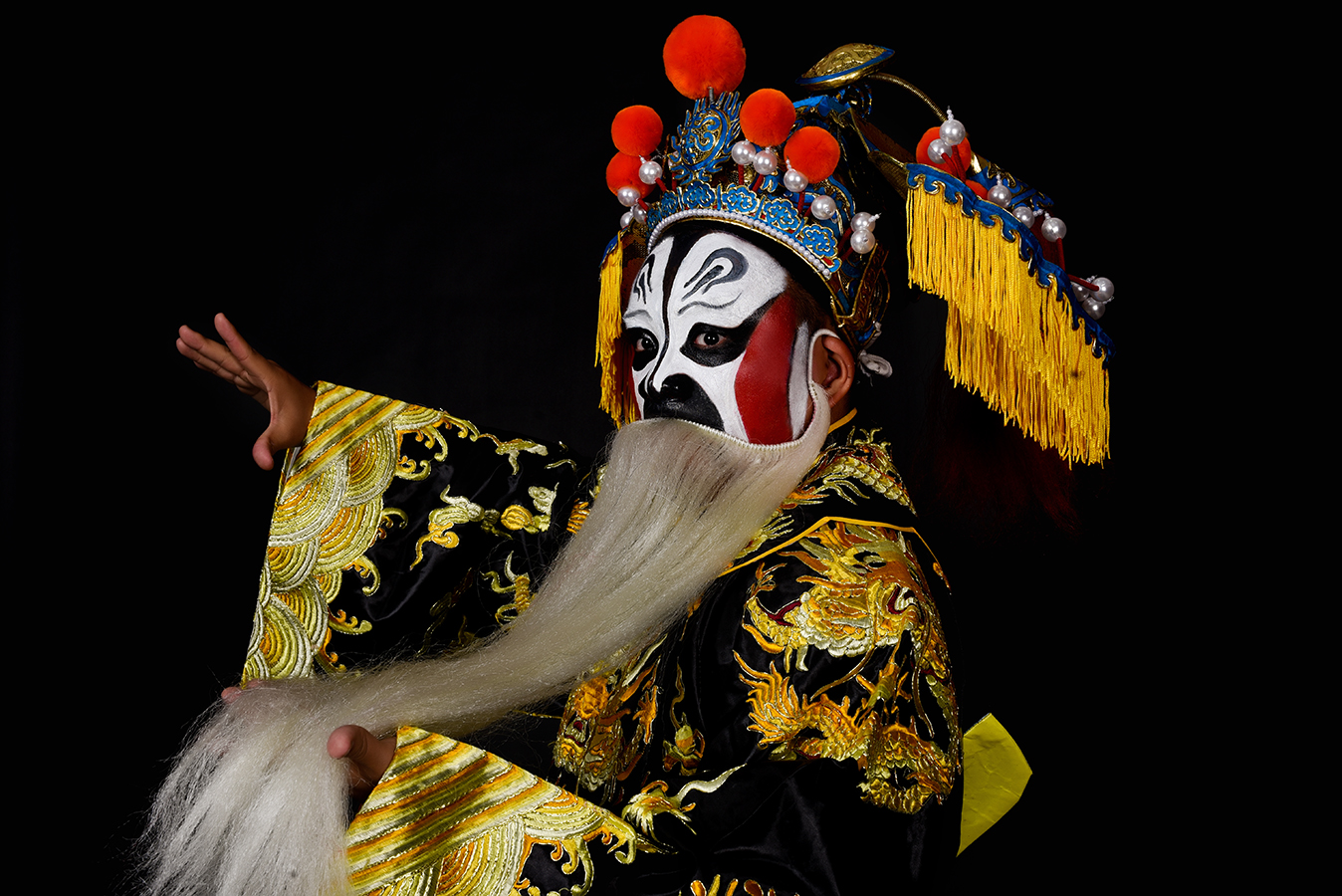
Opening Drum Performance: Nao Tai
Nao Tai is a form of performance that features Sichuan opera drumming as its main instrument. It highlights the distinctiveness of Sichuan culture with its lively and infectious music, creating a festive and joyous atmosphere. In the past, it was used to attract audiences before the main show and was a way to liven up the atmosphere.
Sichuan Opera Zhezi Xi
Sichuan Opera is a unique genre that combines various types of opera, such as Kunqu, Gaoqiang, Pihuang, Luantan, and local folk operas like Dengxi. It is known for its refined skills, witty language, and high literary value. Zhezi Xi refers to the most exciting part of a Sichuan opera performance.
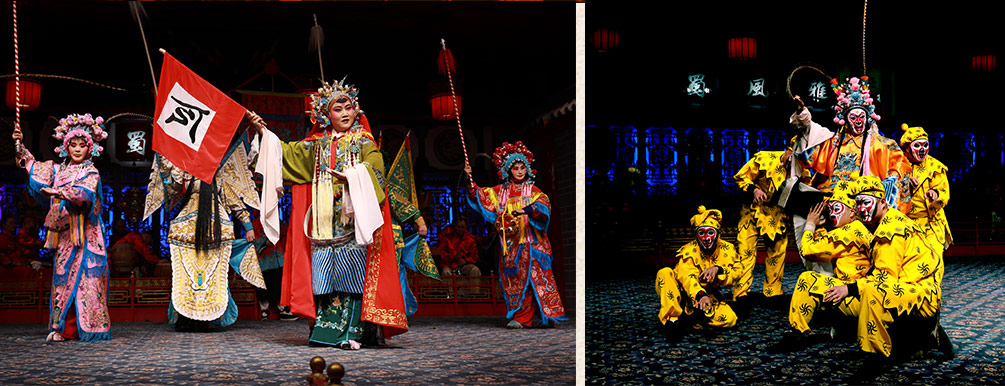
Chinese Folk Music Performance
Huqin is a stringed instrument originating from ethnic minority groups in China, which later evolved into a unique Chinese bowed instrument, including Erhu, Gaoqin, Banhu, and Jinghu. It can express deep and sad emotions, as well as depict grand and spectacular imagery. Suona is a popular Chinese folk wind instrument with a long history, rich techniques, and strong expressive power. It has a bright and lively sound, high-pitched and sonorous, with a combination of hardness and softness. It is one of the most beloved and popular traditional musical instruments in China.
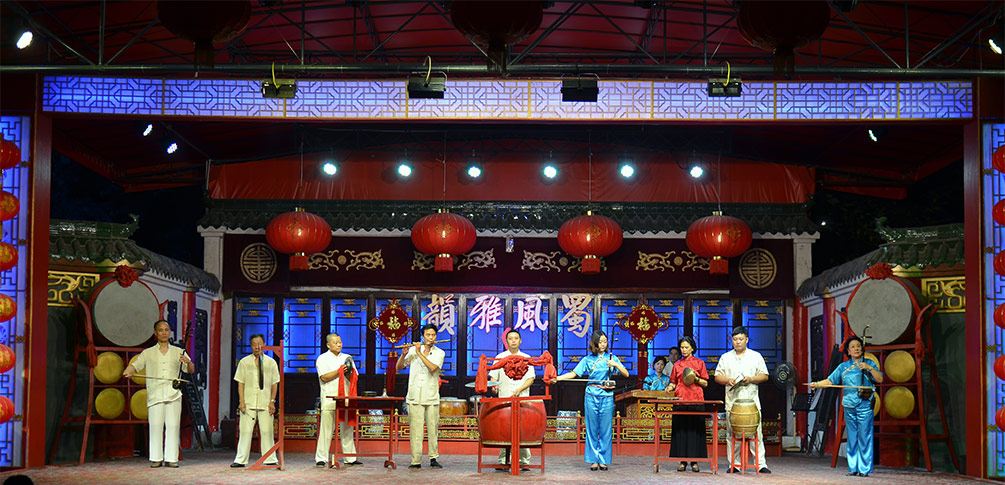
Puppetry
Puppetry, also known as Guignol, originated from the Han Dynasty and was initially used for ancestor worship and offerings to deities. It had a solemn and dignified style. During the Song Dynasty, it evolved into a puppet show. Since the Yuan, Ming, and Qing Dynasties, it has been passed down to the folk and become a popular form of entertainment. Zhangtou Puppetry is a type of folk performance that involves human puppets performing on the same stage, with a long history, exquisite craftsmanship, and complex skills.
Hand Shadow Puppetry
Hand shadow puppetry is a traditional Chinese folk art that has been around for over a thousand years. It is a tribute to the dexterity and skill of the hands. It involves using hand gestures and light to project shadow images onto walls or screens. The hand gestures continuously change, creating vivid and dynamic images.
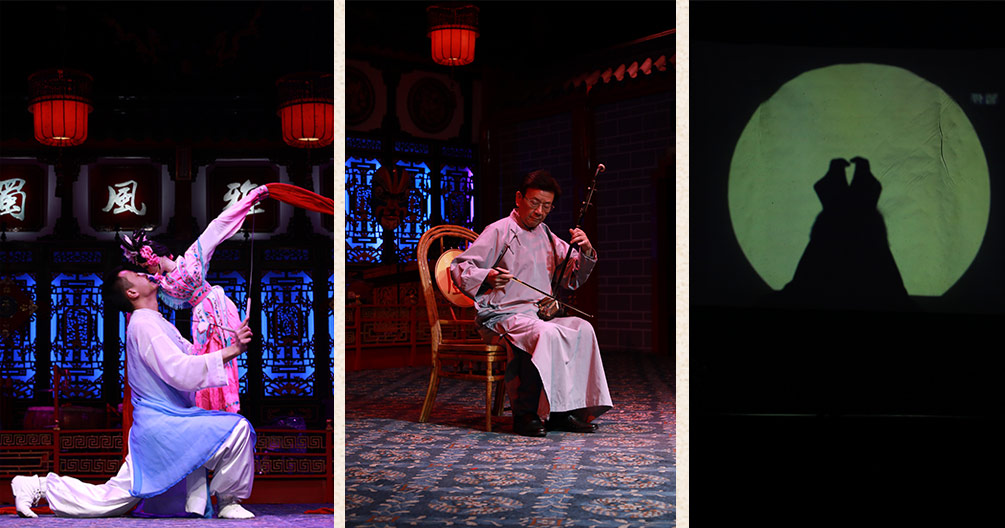
Rolling Light Performance
"Rolling Light" is a classic clown performance in Sichuan opera and a well-known skill. The language is humorous and unconventional. The plot revolves around Pijin, a scholar addicted to gambling, and his wife, who trains him to perform the "rolling light" skill. This skill drives the plot and creates many comical moments.
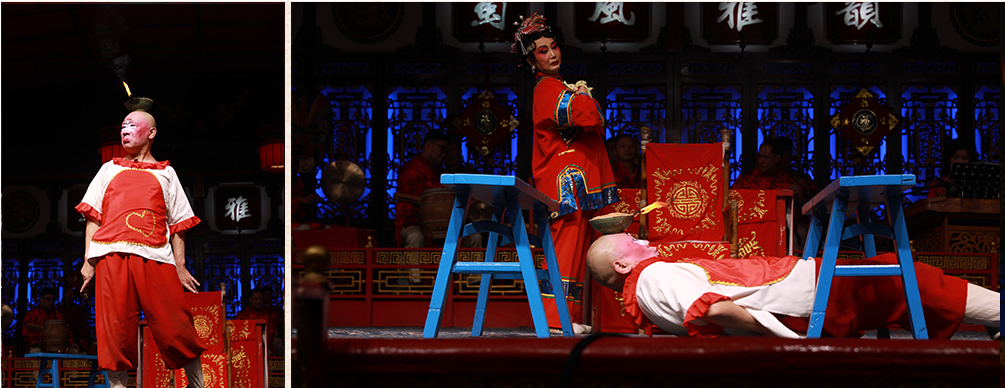
Face-Changing and Fire-Spitting Performance
"Changing faces" and "spitting fire" are unique and mysterious skills in Sichuan Opera, originating from ancient western Sichuan and renowned in the Chinese opera world. Performers of "changing faces" use magical techniques to instantly change their facial masks, and when combined with the bizarre "spitting fire" skill, it displays the rapid changes and inner tension of the character's emotions and plot. This is the most powerful and romantic artistic technique for character portrayal in Sichuan Opera.
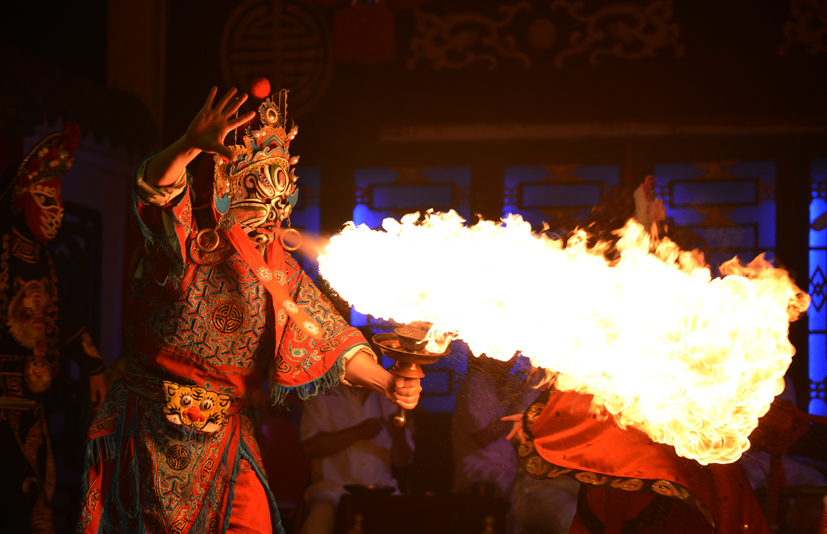
During peak season (July to October), there are usually two shows per day, one at around 18:00 and the other around 20:00. The time varies daily and may be adjusted depending on the period, with most days having two shows and sometimes adding a third show.
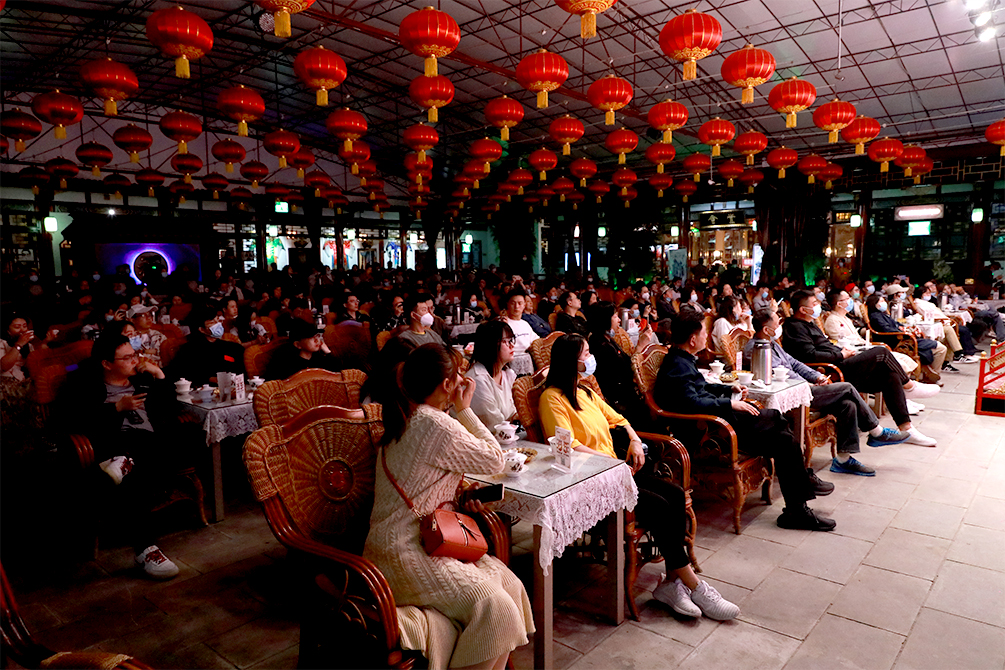
| Ticket Class | List Price | Our Discounted Price |
|---|---|---|
| Type VIP Ticket | RMB 320 |
RMB 220 |
| Type A Ticket | RMB 240 |
RMB 180 |
| Type B Ticket | RMB 180 |
RMB 120 |
| Type C Ticket | RMB 180 |
RMB 120 |
Please complete belowing form and submit it. Our staffs will contact you as soon as after we receiving your inquiry. Please Note by filling the following form does not indicate you have purchased the sim card. Any request of booking will be confirmed by us via email or phone, or wechat.